Pasko Rogulj: Austro-Hungarian Prisoner of Japanese, item 27
Transcription
Transcription history
-
(Left)
Pasko Rogulj (1891-1973)
Seaman of Austro-Hungarian Navy ship
Kaiserin Elisabeth
POW in Japan
World War I
(Right)
Pasko Rogulj was born 1891 in Propotnica near Trogir, Croatia and died 1973 in Statesboro, Georgia, USA. He entered the Austro-Hungarian Navy in 1913 and trained as a cook. His first voyage was in 1914 aboard Seine Majestaetsschiff (SMS) Kaiserin Elisabeth from fleet headquarters at Pola (Pula) to the German treaty port at Tsingtau (Qingdao), China. World War I broke out. Japan promptly declared war on Germany and Austria-Hungary and besieged Tsingtau. The Austrians removed cannon from the Kaiserin Elisabeth, scuttled her in the harbor, and fought in the brief defense of Tsingtau. The Japanese took the German and Austrian defenders and removed them as prisoners of war (POWs) to Japan. They remained there in camps at Himeji and Aonagahara near Kobe until 1920, when they or at least some of them returned to their homelands in a French vessel. Austria-Hungary had collapsed in 1918 and ceased to exist legally at the Paris Peace Conference of 1919. Upon his return, Rogulj and his comrades learned that the Austro-Hungarian fleet had been divided up between Italy and and a new state which would soon be called Yugoslavia. Rogulj decided against serving either of these states and fled first to France and then to the United States, where he promptly became an American citizen. He worked as a cook, later ran his own restaurants in New York and Florida. He invested in real estate in Croatia and later married Ema Novak at Split, Croatia. They had two daughters, Hilda and Elinor, who were born in Croatia with rights as American citizens. Pasko spent part of each year in Croatia and part in America. As World War II approached he prepared to bring his family to live permanently in America. Sadly, war began just as Pasko had gone ahead but before Emma and the girls could get out of Yugoslavia. It was 1951--twelve years later--before the political barriers could be cleared and the family united. This time it was in Florida.
The photos and documents on this disk refer to the World War I period, when Pasko was a prisoner of the Japanese.
-
(Left)
Pasko Rogulj (1891-1973)
Seaman of Austro-Hungarian Navy ship
Kaiserin Elisabeth
POW in Japan
World War I
(Right)
Pasko Rogulj was born 1891 in Propotnica near Trogir, Croatia and died 1973 in Statesboro, Georgia, USA. He entered the Austro-Hungarian Navy in 1913 and trained as a cook. His first voyage was in 1914 aboard Seine Majestaetsschiff (SMS) Kaiserin Elisabeth from fleet headquarters at Pola (Pula) to the German treaty port at Tsingtau (Qingdao), China. World War I broke out. Japan promptly declared war on Germany and Austria-Hungary and besieged Tsingtau. The Austrians removed cannon from the Kaiserin Elisabeth, scuttled her in the harbor, and fought in the brief defense of Tsingtau. The Japanese took the German and Austrian defenders and removed them as prisoners of war (POWs) to Japan. They remained there in camps at Himeji and Aonagahara near Kobe until 1920, when they or at least some of them returned to their homelands in a French vessel. Austria-Hungary had collapsed in 1918 and ceased to exist legally at the Paris Peace Conference of 1919. Upon his return, Rogulj and his comrades learned that the Austro-Hungarian fleet had been divided up between Italy and and a new state which would soon be called Yugoslavia. Rogulj decided against serving either of these states and fled first to France and then to the United States, where he promptly became an American citizen. He worked as a cook, later ran his own restaurants in New York and Florida. He invested in real estate in Croatia and later married Ema Novak at Split, Croatia. They had two daughters, Hilda and Elinor, who were born in Croatia with rights as American citizens. Pasko spent part of each year in Croatia and part in America. As World War II approached he prepared to bring his family to live permanently in America. Sadly, war began just as Pasko had gone ahead but before Emma and the girls could get out of Yugoslavia. It was 1951--twelve years later--before the political barriers could be cleared and the family united. This time it was in Florida.
The photos and documents on this disk refer to the World War I period, when Pasko was a prisoner of the Japanese.
Description
Save description- 36.05572896407991||120.31617604711914||||1
Tsingtau (Qingdao 青岛市)
Location(s)
Story location Tsingtau (Qingdao 青岛市)
- ID
- 13354 / 136104
- Contributor
- Gerald H. Davis
Login to edit the languages
- English
Login to edit the fronts
- Naval Warfare
Login to add keywords
- Prisoners of War
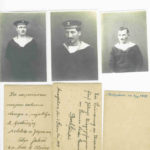


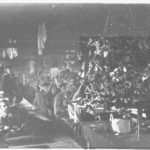
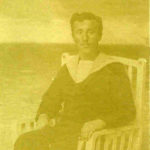


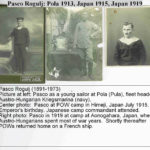


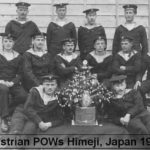





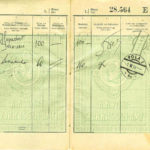




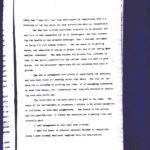
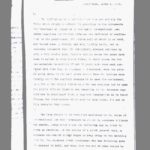
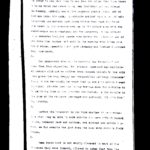
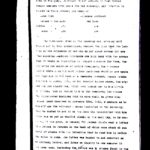
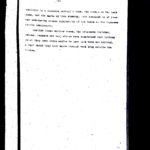

Login to leave a note